Problem-solving abilities Subtraction Worksheets for Ages 4-6
5 filtered results
-
From - To
Enhance your child's problem-solving abilities with our engaging subtraction worksheets designed for ages 4-6. These interactive worksheets encourage young learners to tackle subtraction challenges while developing critical thinking skills. Each activity is crafted to make learning fun, featuring colorful illustrations and easy-to-follow instructions. Children will practice their subtraction skills as they solve real-world problems, helping them understand the concept in a relatable context. Our worksheets are perfect for parents and teachers looking to reinforce math skills at home or in the classroom. Foster a love for learning and boost confidence in math with our thoughtfully designed subtraction problem-solving worksheets!
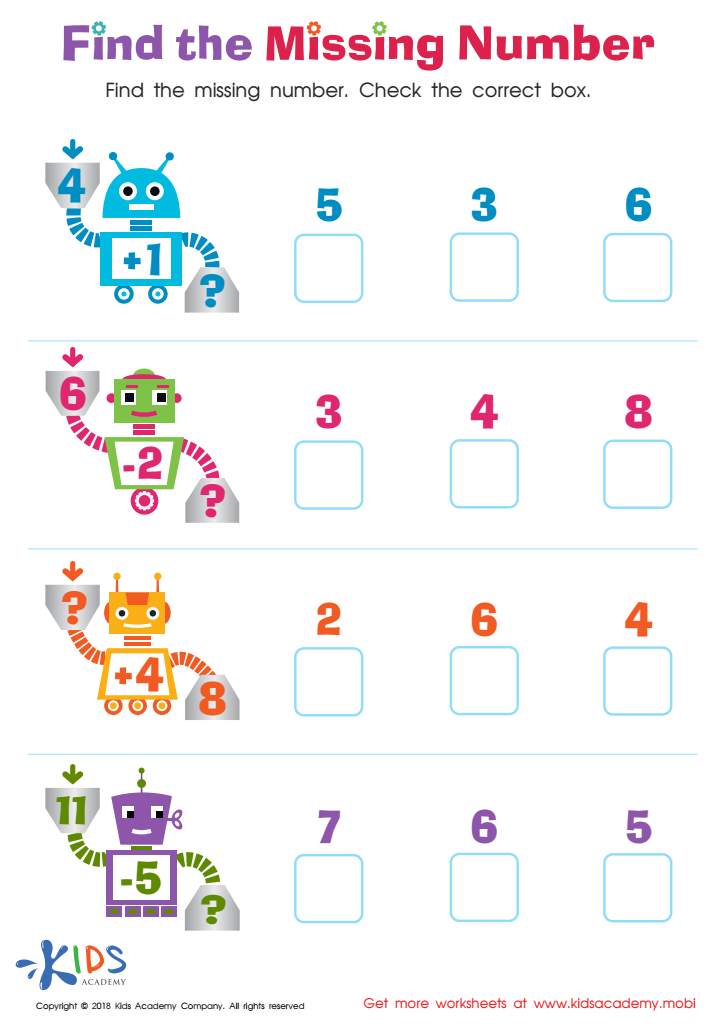

Find the Missing Number Worksheet
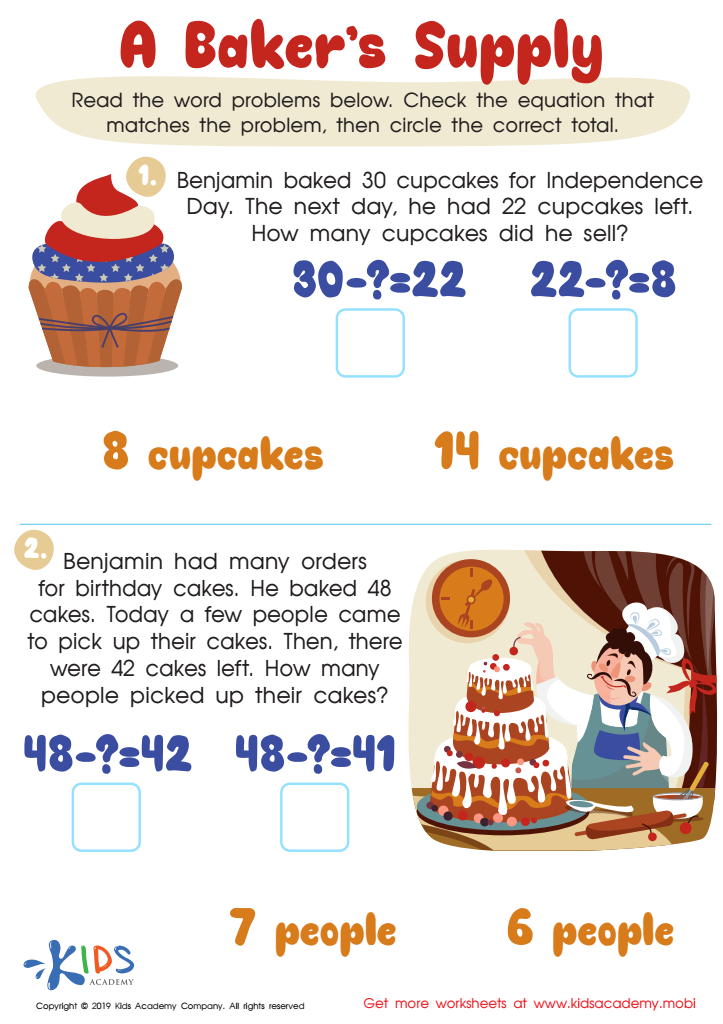

A Baker's Supply Worksheet
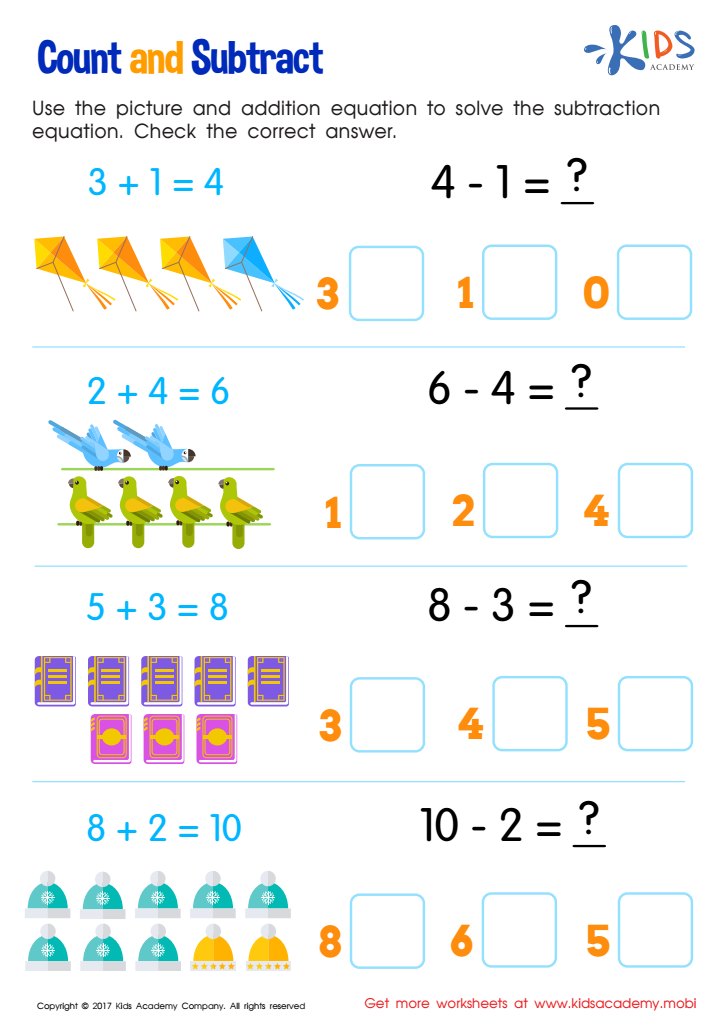

Count and Subtract Worksheet
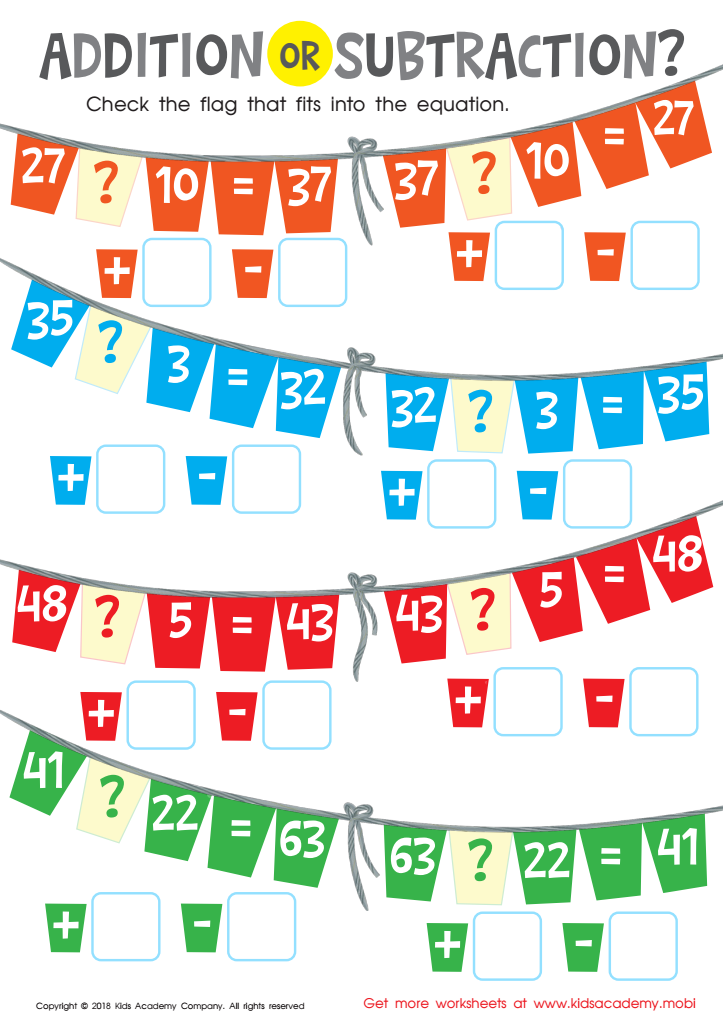

Addition or Subtraction? Worksheet
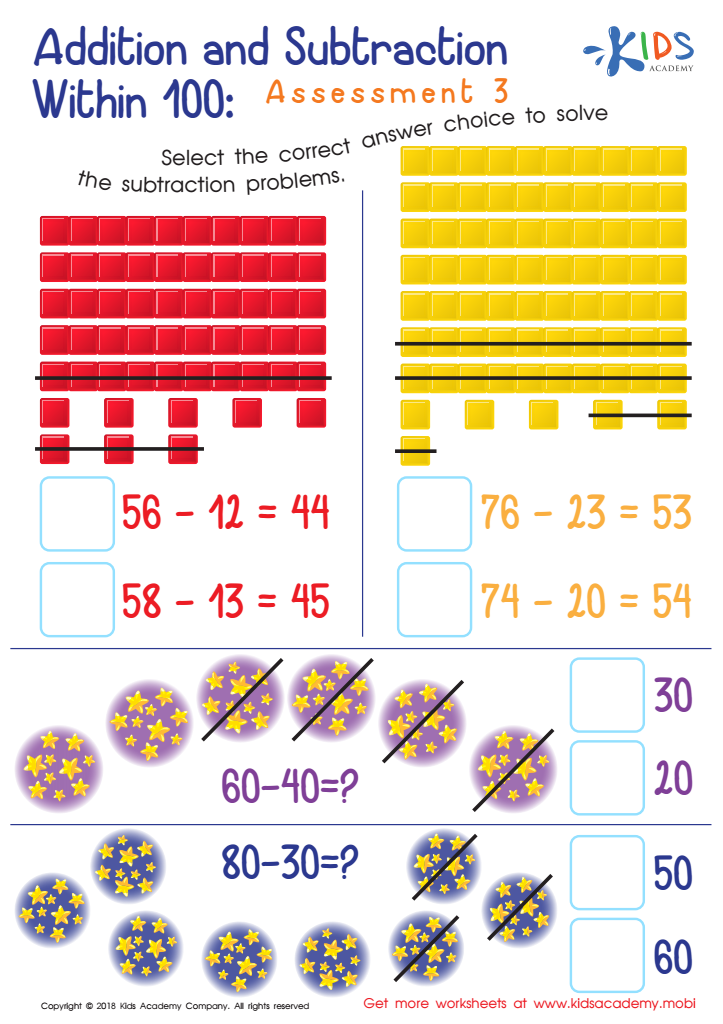

Addition and Subtraction Within 1: Assessment 3 Worksheet
Problem-solving abilities, particularly in subtraction, are crucial for children aged 4-6 as they form foundational skills for both academic achievement and everyday life. At this stage, young learners are beginning to grasp the concept of numbers and mathematical operations. With subtraction, they learn to recognize how quantities can be decreased, which fosters critical thinking and analytical skills.
Encouraging problem-solving in subtraction helps children develop their logical reasoning and enhances their ability to approach challenges methodically. It supports cognitive development by enabling them to understand relationships between numbers, thus enabling them to tackle more complex math concepts in the future. Moreover, these skills contribute to children's confidence in their abilities, making them more willing to engage with problems and persist in the face of difficulties.
For parents and teachers, nurturing children’s problem-solving abilities in subtraction not only prepares them for formal education but also promotes lifelong skills such as perseverance, creativity, and the ability to think outside the box. Engaging in activities that involve subtraction can transform learning into a fun experience and make mathematics accessible, breaking down apprehension towards the subject. Ultimately, fostering these abilities now lays the groundwork for both academic progress and practical problem-solving in daily life.
 Assign to My Students
Assign to My Students






















